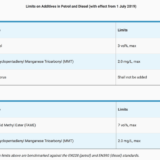
Indonesia to broaden biodiesel mandate as early as next month
Indonesia plans to broaden its biodiesel mandate by requiring the use of diesel fuel blended with palm oil biodiesel compulsory for all vehicles and heavy machinery starting 1 September, according to Renewable Energy Director General Rida Mulyana.
Biodiesel use is currently only mandatory for subsidised diesel users, the sale of which is restricted.
With the expansion of the B20 blending rule, Indonesia could increase utilisation of its biodiesel production capacity from the current 25% to between 35% and 50%, according to Togar Sitanggang, a senior official at the Indonesian Palm Oil Association. Indonesia is the world’s largest producer of palm oil, which is used to make biodiesel in Indonesia.
Biodiesel consumption is expected to rise next year to 6 million-6.2 million kilolitres (KL), from 4 million KL this year, as a result.
The move aims to plug Indonesia’s current account deficit, which is expected to increase from USD 17 billion last year to USD 25 billion this year, due to rising imports.
Indonesian President Joko Widodo was quoted in a Reuters report that he wanted to see the immediate implementation of Indonesia’s biodiesel expansion program, to save on foreign currency currently being used to import diesel fuel.
According to Mulyana, government agencies are revising draft presidential and ministerial regulations on biodiesel, as well as working out quota allocations for biodiesel producers and fuel retailers.
“All ministries are ready. All fuel retailers and biodiesel producers are ready to clean their infrastructure, to identify what the problems are and then (carry out) mitigation,” said Mulyana. Indonesia has 19 biodiesel producers and 14 fuel retailers.
Fuel outlets will no longer be allowed to sell 100% petroleum diesel fuel once the regulation is in place and would be subject to fines if caught.














